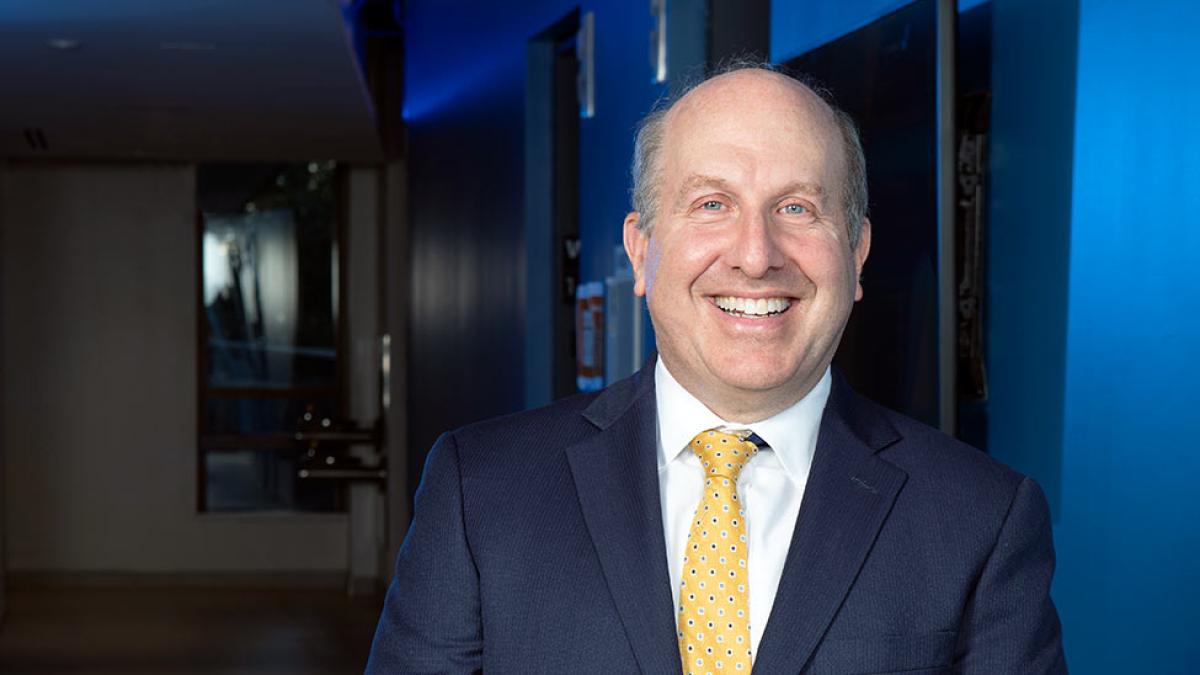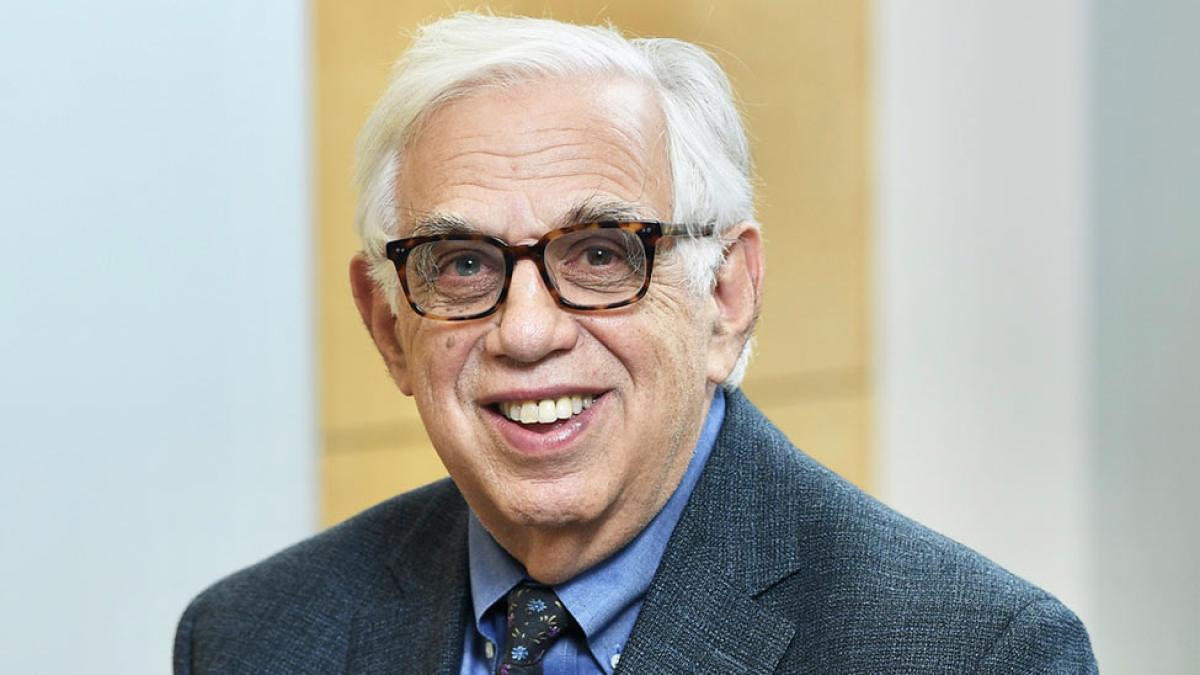
“Other States May Follow”: Expert Says Colorado Ruling Could Have “Devastating Impact” On Trump Bid
“The state court ruling sets a historic precedent which other states may follow,” Bennett Gershman, a former New York prosecutor and law professor at Pace University, told Salon. “It is a landmark ruling. I can’t think of an application of this provision in modern times.”
Pace University To Introduce Game Development Program Coming In 2024
Pace University has announced its introducing a new game development program starting in fall 2024. Students can now graduate with Bachelor's Degree in game development, and will have the opportunity to learn how to create mobile and traditional video games, preparing them for a booming industry. Pace athletics announced E-Sports as its 15th varsity sport back in 2021. The program was recently voted number one in the nation after winning a march madness-styled bracket for college esports programs.
Good News For Gamers: Pace To Introduce Video Game Development Degree Program
Love video games? Make it your career. Pace University will launch a video game development program in the fall of 2024.
The new bachelor's degree will aim to produce students with a well-rounded education in game development, including computer science, art, design, and narrative, according to a news release Thursday.
The Coming AI Revolution—And Why College Graduates Will Be Ready For It
Pace President Marvin Krislov writes in Forbes about the coming AI revolution and why college graduates will be ready for it.

Who Watches New York's Jail Watchdog?
Professor Michael Mushlin speaks with New York Focus about how jails are monitored by the New York State Commission of Correction.

Legal Expert: Bogus Election Claims Are Coming Back To Bite Kari Lake's Lawyers
Professor Bennett Gershman speaks to Salon about a committee that regulates attorneys in Arizona finding probable cause to take formal action against three lawyers who acted on behalf of former gubernatorial candidate Kari Lake in election-related matters.
Using Your Credit Cards & Other Methods to Travel Hack Responsibly and Safely
Lubin Professor Andrew Coggins Jr. provides expert insight to Money Geek about using credit cards & other methods to travel hack responsibly and safely.

Best Gaming Headsets of 2024
Director of esports Jesse Bodony speaks with US News about the best gaming headsets in 20224.
‘It’s Everyone’s Nightmare — The Robot Doesn’t Stop’: Tesla Recall And Robotaxi Crash Throw Self-Driving Car Dream Into Crisis
Seidenberg Dean Johnathan Hill speaks with NY Post about Tesla’s being recalled and the self-driving car crisis.
Entrepreneurial Excellence: Q+A with Forbes 30 Under 30 honoree Juliana Martins '19
Dyson alumna Juliana Martins ’19 is a Forbes 30 Under 30 entrepreneur whose success is built on communications and business skills developed at Pace.


Juliana Martins
Class of 2019
Bachelor of Arts in Communication and Media Studies
Juliana recently made Forbes magazine’s 30 Under 30 North America list for media as the founder of Eleven11 Media Relations, a media relations company launched in 2020 in New York City to support brands that could not afford to sign with large agencies after the COVID pandemic. Her company has brought in six figures of revenue in 2022 alone, working on past projects with names such as Shaquille O'Neal and Grammy-nominated singer Kesha.
Please tell us more about the inspiration behind your company’s founding and how your work is meaningful to you.
Starting Eleven11 Media Relations was not a dream I’ve had for ages, but instead, presented itself out of identifying a gap in the public relations (PR) market of brands that valued quality PR support, yet could not afford a mid-sized or large agency. I started working on a referral basis with clients I knew or connected with through mutual friends and the company began to grow from word of mouth. My work is meaningful to me as we are very selective with clients, companies, and brands we connect with. We are a boutique agency, so we offer quality and attentive service to our clients, and do not over-saturate our roster to ensure we can continue the elevated level of service that our clients deserve. Being able to support someone’s dream and be a part of their journey and growing success is such a special feeling.
What would you say is the secret to your success, and so early in your career? What advice would you give to those who seek to be entrepreneurs?
I believe the secret to being successful is forming genuine and thoughtful relationships and to be mindful of maintaining and cultivating relationships. It is easy to meet somebody, as we meet people every day; what you do after that initial meeting is what matters. Every business in the world is based on the foundation of relationships, so they should always be a top priority. My advice is to go the extra mile to send that text, call that person, and write that handwritten note. Stay in touch with people, be genuine and kind because you want to, and if it turns into a business opportunity or career lead one day, incredible. If not, you have a great relationship regardless.
Why did you choose to major in Communication and Media Studies and how has your degree prepared you for your career?
Our entire world and existence are based on relationships and communication, and so, knowing how to effectively communicate will help you positively navigate almost every situation (or at least give you a leg up), in real life, including personal relationships and in every career. My degree helped nurture and refine my communication skills and helped emphasize the importance of these skills through mindfully thinking about them over the course of my education. I also had the best internship of my life in my junior year at a PR agency called EvolveMKD, one that provided hands-on experience and learning from some of the smartest women in the field. I highly recommend internships, as I had no idea what PR really was or if I’d like it until this internship completely opened my eyes and kick-started my career. They are also great for job security, as I got hired by this company upon finishing my degree.
My degree helped nurture and refine my communication skills and helped emphasize the importance of these skills through mindfully thinking about them over the course of my education.
Why did you choose to attend Pace?
Pace has acclaimed communications and business programs, and I felt that I would have many real-world learning experiences there, as it’s also located in downtown Manhattan and the city was our campus. Many of the professors at Pace also still had ongoing careers and connections in the city outside of teaching. In addition, I was born and raised in Northwest Arkansas and was very lucky to move to a city and attend a university that is very accepting of different cultures and communities. Both attending a progressive university and later finding a workplace that is inclusive of diversity, equity, and inclusion is essential for facilitating positive career growth.
How had faculty been instrumental in your journey?
Although many of my courses, such as one taken in world religions, provided me with well-rounded knowledge, others were especially thought-provoking even outside of the classroom. For example, Professor Harvey Markovitz in the marketing department of the Lubin School of Business was one of my favorites. I’d go home after class to my dad’s house and always regurgitate everything learned in that class to him, as I was super excited about how to apply my learnings in the real world. His class helped me make immediate changes to advance my career, such as teaching me how to create an effective elevator pitch, how to have a competitive LinkedIn profile and bio for job searches, and so forth.
College is a significant time in a person’s life. In what ways has your time as a student influenced you to become the person you are today?
Being a Pace student had brought me the best friends I could ask for. Growing up, I felt a disconnect to some people in my hometown due to the nontraditional family I was brought up in (having gay fathers) and it not being the most understood and accepted family dynamic at that time. When I came to Pace, I ended up meeting the best people in my life from sitting in the library between classes. I have shared many laughs and life experiences with these friends, and we have gone through so much together. We are all still in a group chat today that we still communicate in on a weekly if not daily basis. I go on trips with our core girl group multiple times a year and we will forever be friends due to Pace. I wouldn’t be who I am today without the incredible love and support we have poured into each other over the years.
What advice would you give to our students, as they navigate their college life?
You are probably tired of me saying this, but prioritize relationships and friendships. Go to your classes and learn, but also don’t rush home or to your dorm. Build those relationships, because once college ends, those are people that will stick with you for life and bring continued happiness if you invest genuine time and effort into each other.